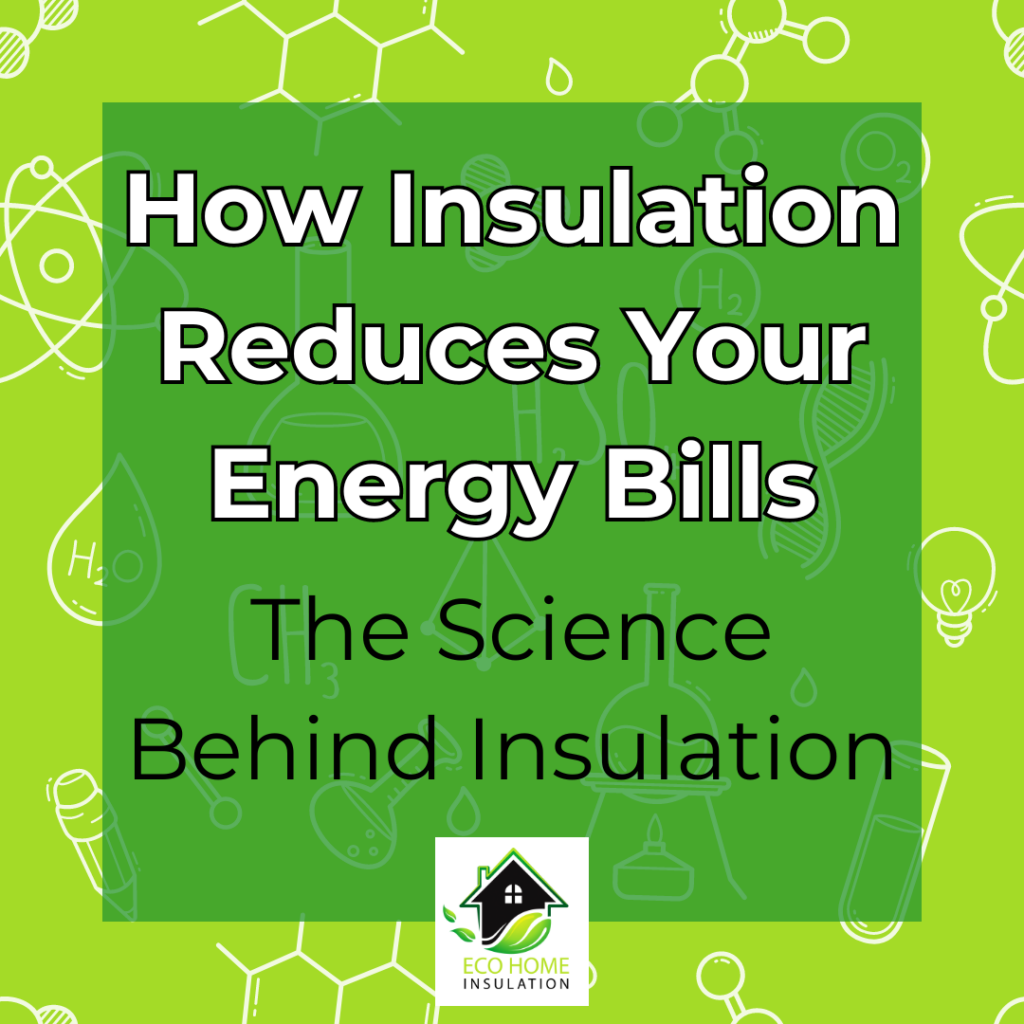The Science Behind Insulation
Insulation works by reducing the amount of heat that escapes from your home during the winter and keeping heat out during the summer. This process hinges on the basic principles of heat transfer: conduction, convection, and radiation.
- Conduction is the transfer of heat through a material. Insulation materials are designed to slow down this process. For instance, mineral wool insulation traps air within tiny fibres, reducing the rate at which heat moves through it.
- Convection involves the movement of heat through liquids and gases. Insulation helps to mitigate this by creating barriers that prevent warm air inside your home from circulating and escaping through the walls, roof, and floors.
- Radiation is the transfer of heat in the form of electromagnetic waves. Reflective insulation materials, like radiant barriers, are used to reflect heat away from your home in the summer and retain it during the winter.
By addressing all three forms of heat transfer, effective insulation maintains a consistent indoor temperature, reducing the need for constant heating and cooling. This translates directly into lower energy consumption and, consequently, lower energy bills.
The Impact on Energy Consumption and Costs
Proper insulation can significantly impact your energy consumption. According to the Energy Saving Trust, around a third of all heat lost in an uninsulated home escapes through the walls. With adequate insulation:
- Energy Efficiency: Insulation keeps the desired temperature inside your home stable, which means your heating system doesn’t have to work as hard or as often. This reduces energy use and wear and tear on your heating system.
- Cost Savings: By reducing energy consumption, insulation directly lowers your utility bills. The exact savings depend on various factors, including the current state of your home’s insulation and local energy costs, but homeowners can typically save up to 20% on their heating costs.
- Environmental Benefits: Using less energy means fewer fossil fuels are burned to generate electricity, which decreases greenhouse gas emissions and your carbon footprint.
Top Tips for Maintaining Your Home’s Insulation
- Regular Inspections: Periodically check your insulation for any signs of wear, damage, or moisture. Look for compressed areas, gaps, or spots where the insulation has settled. Address any issues immediately to maintain efficiency.
- Seal Gaps and Cracks: Air leaks around windows, doors, and in your loft can undermine the effectiveness of your insulation. Use caulk or weatherstripping to seal these gaps and prevent air from escaping.
- Upgrade Insulation When Needed: Older homes may have outdated insulation that doesn’t meet current standards. Consider upgrading to more efficient materials. This can be done via schemes such as ECO 4 or GBIS which are offered to eligible customers via Eco Home Insulation.
- Protect Against Moisture: Insulation can lose its effectiveness if it gets wet. Ensure your home’s roof and walls are in good condition to prevent leaks. Use vapour barriers in areas prone to moisture to protect the insulation.
- Maintain Proper Ventilation: Good ventilation is crucial to prevent moisture buildup, which can damage insulation. Ensure your loft and crawl spaces are adequately ventilated.
- Monitor and Replace Weatherstripping: Over time, weatherstripping around doors and windows can deteriorate. Regularly check and replace it to ensure a tight seal.
- Insulate Pipework: If your home has a central heating system, ensure the pipework is well-insulated. Uninsulated pipes can lead to significant energy losses.
- Professional Energy Audit: Consider having a professional energy audit performed on your home. An auditor can identify areas where your insulation is lacking and recommend improvements to enhance efficiency.
By understanding the science behind insulation and following these maintenance tips, you can maximise the effectiveness of your home’s insulation, leading to substantial savings on your energy bills and a more comfortable living environment.
Investing in quality insulation and maintaining it properly is not only a smart financial decision but also a step towards a more sustainable future.
At Eco Home Insulation, we are dedicated to helping homeowners reduce their energy bills and carbon footprint through our comprehensive insulation services. We provide insulation solutions to eligible customers under the ECO 4 and Great British Insulation Scheme, ensuring that those who qualify receive top-quality insulation at no cost.
Plus, for those who may not meet the eligibility criteria, we offer our services at competitive prices, making energy efficiency accessible to everyone. To find out if you qualify for grant-funded insulation, please visit our website and use our eligibility checker located on the eligibility page. Eco Home Insulation is committed to delivering exceptional service and sustainable energy solutions to all our customers.

